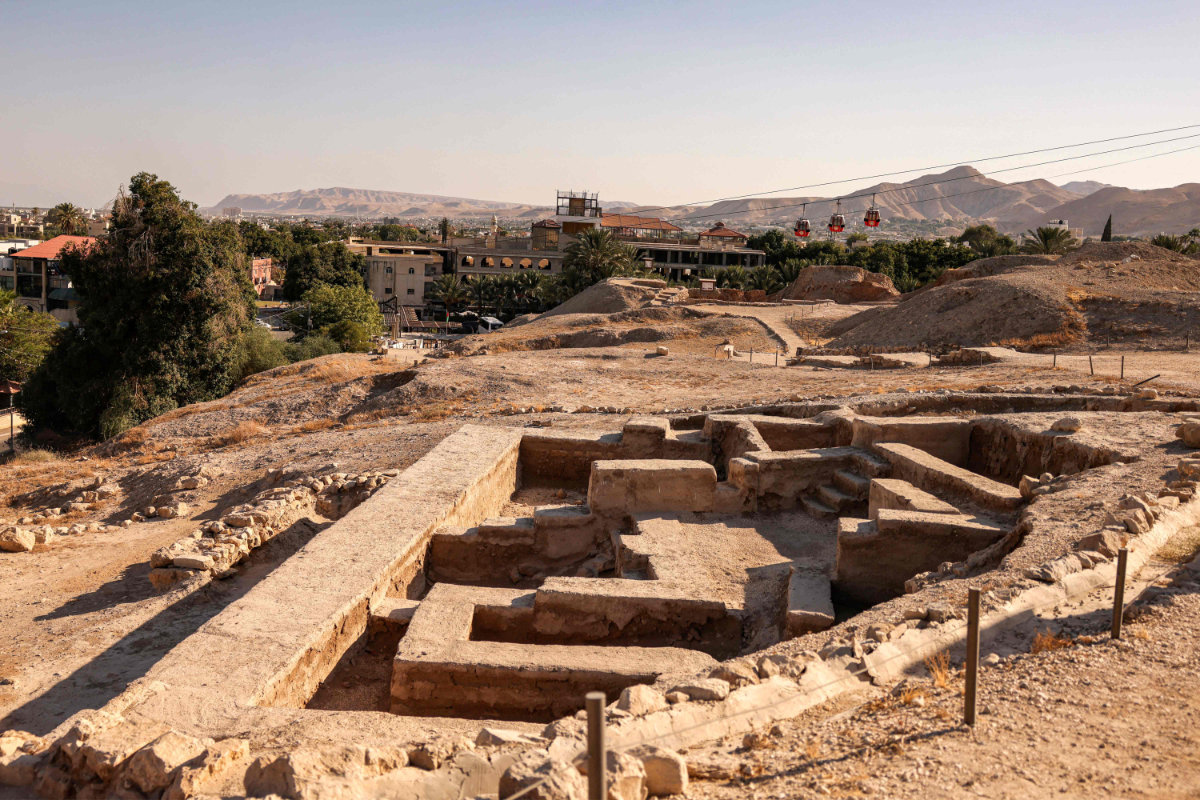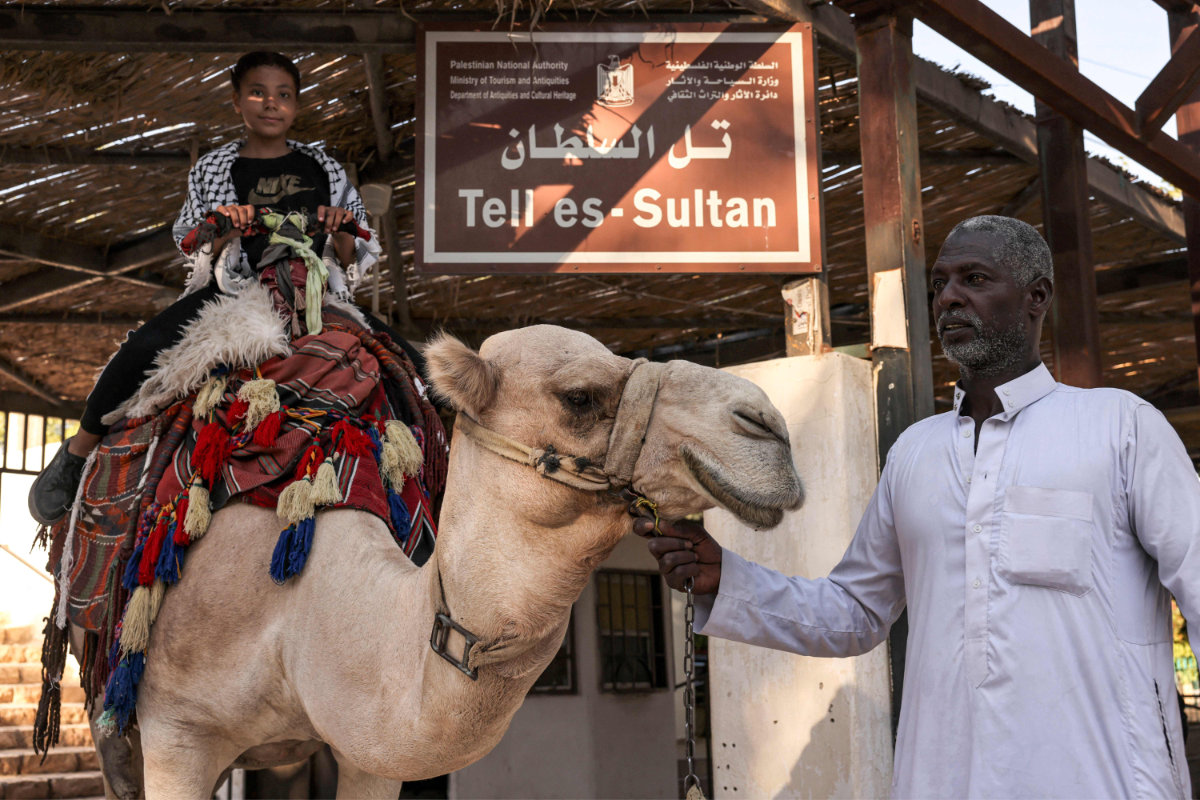RIYADH: The United Nations’ cultural organization UNESCO inscribed the pre-historic site of Tell es-Sultan, near the Palestinian city of Jericho in the occupied West Bank, on its World Heritage List on Sunday.
Tell es-Sultan, which predates Egypt’s pyramids, is an oval-shaped tell, or mound, located in the Jordan Valley that contains the prehistoric deposits of human activity.

Tourists visit the pre-historic site of Tell al-Sultan on September 17, 2023, the same day it was added to the UNESCO World Heritage List. (Hazem Bader/AFP)
The UNESCO decision, which was posted by the organization on X, formerly Twitter, was taken at its 45th world heritage committee meeting held in Riyadh, Saudi Arabia.
“The property proposed for nomination is the prehistoric archaeological site of Tell es-Sultan, located outside the antique site of Jericho,” UNESCO’s assistant director general, Ernesto Ottone, said at the session.
The site was inscribed following a three-year candidacy “during which no state party raised any objections,” said a diplomat, speaking on condition of anonymity as he was not authorized to speak to the media.
“There are no Jewish or Christian remains found at the (Tell Al-Sultan) site. It’s a place of pre-historic remains,” the diplomat told AFP.

A view of the pre-historic site of Tell al-Sultan, near the Palestinian city of Jericho in the occupied West Bank, which predates Egypt's pyramids. (Hazem Bader/AFP)
Palestinian president Mahmoud Abbas said he considered the decision to inscribe Tell es-Sultan “a matter of great importance and evidence of the authenticity and history of the Palestinian people.”
He vowed that the Palestinian authorities would “continue to preserve this unique site for all humanity,” according to a statement from his office.
UNESCO’s listing shows that the Tell es-Sultan site is “an integral part of the diverse Palestinian heritage of exceptional human value,” Palestinian tourism minister Rula Maayah, who was attending the meeting in Riyadh, said in a statement.
Given Tell es-Sultan’s “importance as the oldest fortified city in the world... it deserves to be a World Heritage Site,” she said.
“A permanent settlement had emerged here by the 9th to 8th millennium BC due to the fertile soil of the oasis and easy access to water,” UNESCO said on its website.

A tourist rides a camel at the pre-historic site of Tell al-Sultan near the Palestinian city of Jericho in the occupied West Bank on September 17, 2023, which was added to the UNESCO World Heritage List on the same day. (Hazem Bader/AFP)
UNESCO said the “skulls and statues found on the site” testify to cultic practices among the neolithic population there, while the early bronze age archaeological material shows signs of urban planning.
The Tell es-Sultan site has been under excavation for over a century and is billed as the oldest continuously inhabited settlement on the planet, the official Palestinian news agency Wafa reported.
Tell es-Sultan is the fourth Palestinian site to be listed on UNESCO’s world heritage list, alongside the Church of the Nativity and the Old City of Hebron.














